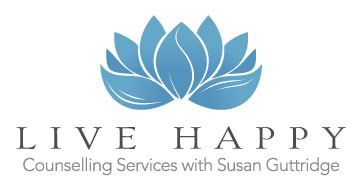|
Shame is a concept that comes up a lot in the course of working with people in counselling. Shame is that little nagging voice in the back of one’s mind, constantly repeating variations of “I’m not good enough” and “I’m such a failure”. Shame itself is a fear-based emotion bringing with it a fundamental sense of inadequacy and lack of belonging. It is a sense that everyone can see our internal brokenness, our inherent flaws. Shame often carries with it a sense of being worthless, unredeemable, unlovable, humiliated, less than, smallness, and weakness. It creates a distress within us that can be so activating, making us feel a dissonance from our authentic self; making us question our very sense of self.
When working with individuals who have experienced abuse, there is a significant level of shame that often blocks healing and moving forward. While the feeling of shame can be debilitating and confusing, thanks to people like Brene Brown, there are now You Tube videos and books and workshops that can help us through the experience of shame. To take it one step further though, I’d like to write about how shame comes to bubbles up in the first place, specifically in the context of abuse. My intention is that with a little theory, we can normalize the experience of this insidious feeling, develop action steps to process it, and thus help to dilute shames’ otherwise pervasive effects. To explain this pervasive sense of shame that can result from abuse experiences, we have to draw on learning theory. Specifically, classical conditioning (think Pavlov and his dogs!). In this case, we want to understand evaluative conditioning. Evaluative conditioning refers to “an attitude development or change toward an object as a result of that object’s co-occurrence with another object”. Complicated description, yes – but here is how it breaks down: when being abused, the abuse experience (which is recognized as “a very bad experience”) gets paired with the self, and the person thus (unconsciously) negatively evaluates themselves as “I am bad”. In other words, evaluative conditioning is an unconscious, automatic, and persistent transfer of one’s dislike for one stimulus to be transferred onto another. In the case of sexual abuse, the disgust, shame, and fear associated with the abuse gets associated with physical touch, body odors, sex-related sounds, and even one’s own body; which in the language of shame says: “I am bad”. The disgust, shame, and fear associated with the sexual abuse can also come to be paired with physical touch and sex in general, which has the self-language of: “I am dirty and disgusting”. If the perpetrator was shaming during the abuse, one might come to pair the abuse with emotional experiences. This means feeling ashamed of your emotional experiences. In summary, it is in this way that shame becomes a result of evaluative conditioning of the self. It is a voice within that quietly taints all daily experiences. The feeling of shame can be overwhelmingly debilitating at times, causing people to freeze or flee or become defensive in life and in relationships. Shame can create confusion, and fear, and anger. It it can inhibit joy, sexuality, sadness, and hurt. It can stop us from fully living life. If you have experienced abuse and recognize these patterns as playing out in your life, please know that you are not alone and that there is help. Through counselling, which starts first with building trust and connecting with safety in the counselling relationship, you can develop new strategies for noticing and releasing shame. You can work on counter-conditioning the conditioned pairing (for example, unpairing self from disgust), and cultivating empathy and appreciation for all parts of self. That equals self-compassion. Every single one of us is worth taking up a bit of space in this world – to live our life and fulfill our dreams. If shame is stopping you, please consider working with a Counsellor to heal. References:
Disclaimer: This is a very simplified overview of evaluative conditioning / learning theory and the shame that stems from abuse experiences.
0 Comments
Your comment will be posted after it is approved.
Leave a Reply. |
AuthorSusan Guttridge is a trauma-informed Master level Counsellor with the clinical designation of Canadian Certified Counsellor (CCPA). She has 20+ years experience providing individual and group therapy. Archives
January 2024
Categories
All
|


 RSS Feed
RSS Feed